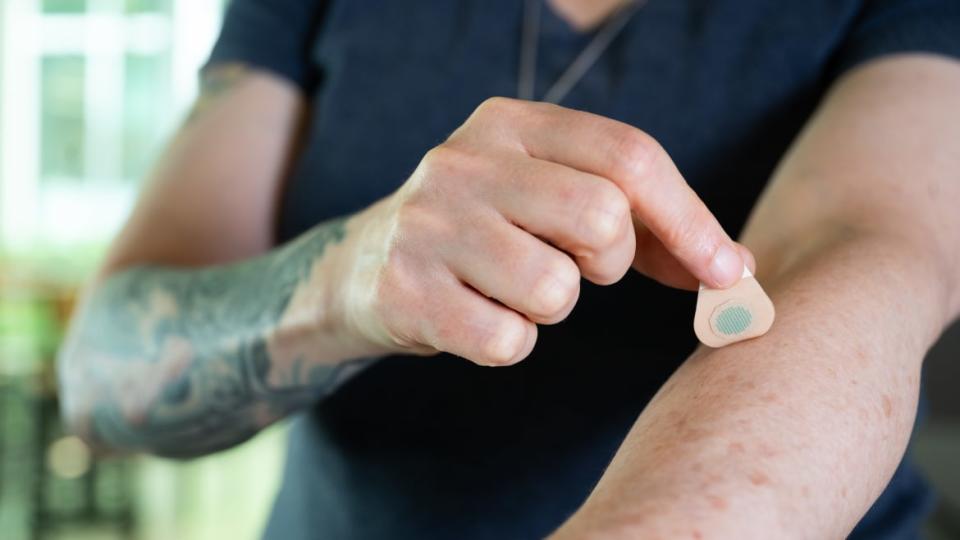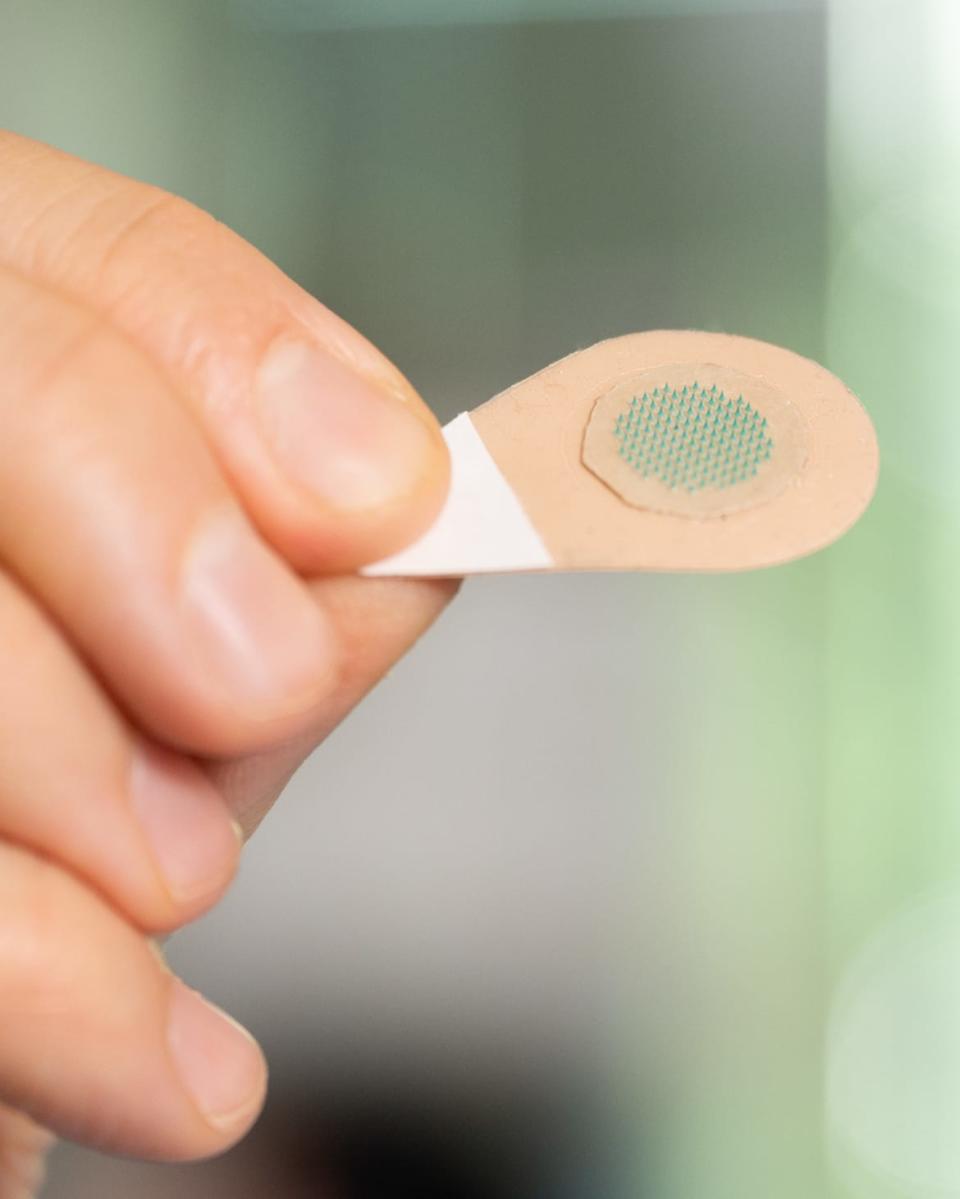Scientists Invent a Patch That Gives You Painless Tattoos

Unless you’re a professional tattoo artist (or an angsty teenager with a needle and a lighter), you likely haven’t considered inking yourself. But that may change one day: Researchers have designed single-use patches with tiny needles that are easy to use and can deposit tattoos on the skin—painlessly. Though these microneedle tattoo patches will be used for veterinary care in the short term, the researchers say the applications could expand to human medical and cosmetic care in the future.
“If somebody wanted to have the symbol of their university, their favorite football team, someone's name, or a very simple tattoo like that, then the microneedle patch could work,” Mark Prausnitz, a chemical and biomolecular engineering researcher at Georgia Tech who led the recent study, told The Daily Beast. “It could be given by an expert, but there could be scenarios where someone could self-administer.” The new microneedle patch was unveiled Wednesday in a paper published in the journal iScience.

Compared to traditional tattoo needles, each microneedle is smaller and does not penetrate as deeply into the skin. Prausnitz said that most people describe the experience of receiving a microneedle patch injection as painless and compare it to the rough but not uncomfortable feeling of velcro. Microneedle patches are an up-and-coming technology for drug delivery and vaccination, but Prausnitz’ team realized that the platform could be used to conveniently deposit more than just pharmaceuticals under the skin.
In the study, the researchers sedated lab rats (“Just because they squirm a lot,” said Prausnitz) and pressed microneedle patches that made the shapes of a star and a heart to a patch of shaved skin for 15 minutes. They monitored the rats for a year, finding that the ink faded and the heart tattoo distorted slightly; however, these tattoos may be better preserved on human skin, since rats grow quickly and have a faster metabolism than humans. They also created one microneedle patch with tattoo ink on one side and an inactivated polio vaccine on the other—theoretically, Prausnitz said, this method could be used as a living health record to document an animal’s vaccination status.

Mark Prausnitz.
Prausnitz is also working with an organization that sterilizes dogs and cats in urban areas to test out microneedle tattooing as an alternative to ear clipping or tagging. The tattoos that some sterilized female dogs currently have are added at the end of a surgery, which is not always cost-effective for feral animals in developing countries. So far, Prausnitz said, the tattoos have remained on dogs and cats for at least a year.
In the future, patients may opt for tattoos to record critical medical information. “If somebody might not want to wear a bracelet, but instead wants to do it in the form of a tattoo, the benefit to the patient is very clear,” Prausnitz said— a tattoo cannot fall off or be lost, and does not have to be outwardly visible.
This Wearable Patch Zaps Your Neck to Instantly Detect Concussions
Stil, these kinds of applications do raise ethical questions that will need to be worked out. There is no consensus over the legal validity of a tattoo, such as in an infamous case of a person with a “do not resuscitate” tattoo. Microneedle ink of a person’s blood type, medical condition, or instructions to health professionals falls into a gray area.
Prausnitz said he doubts that microneedle patches will replace professional tattoo artists anytime soon, since the patches cannot deposit ink as densely as traditional needles, nor can they cover wide areas. And, lest a person misspell a mantra or permanently ink an ex’s name, future work should combine the microneedles with nontoxic ink that degrades under the skin.
“I think a self-administered tattoo is probably best coupled with a temporary ink, just in case anything goes wrong,” Prausnitz said.
Get the Daily Beast's biggest scoops and scandals delivered right to your inbox. Sign up now.
Stay informed and gain unlimited access to the Daily Beast's unmatched reporting. Subscribe now.

 Yahoo Finance
Yahoo Finance 